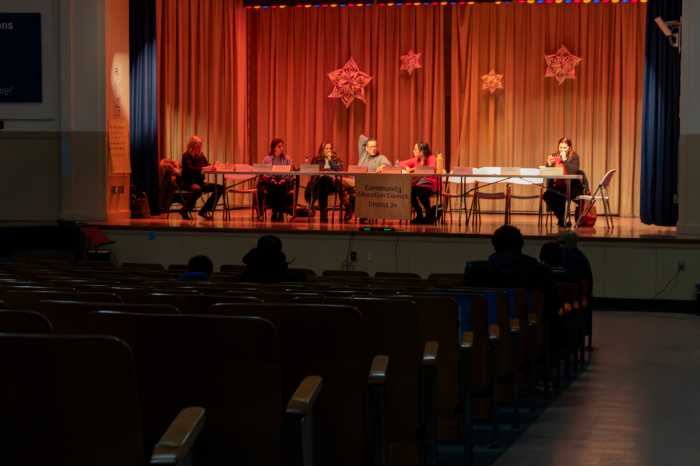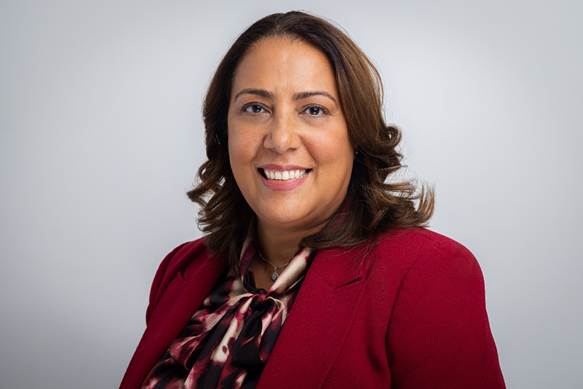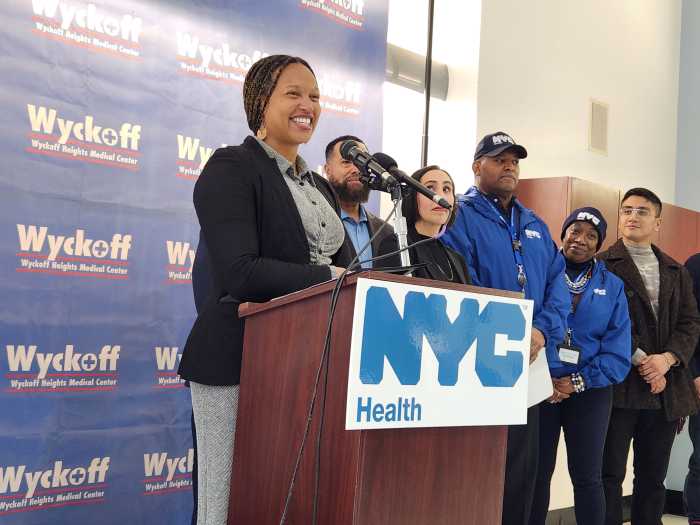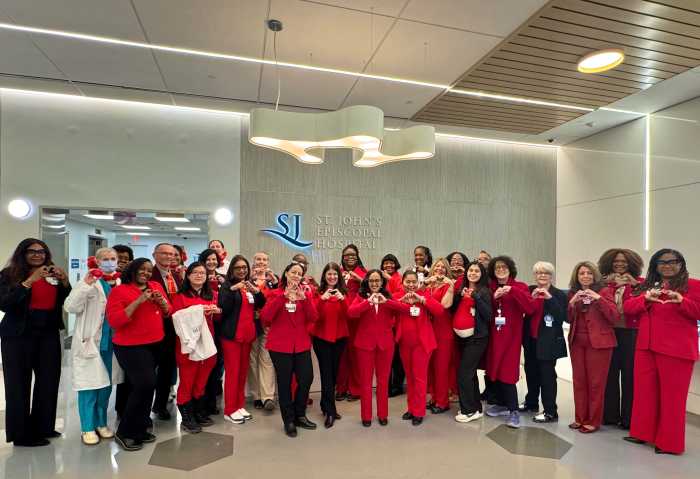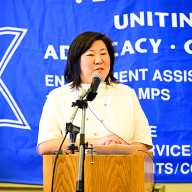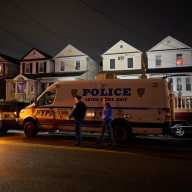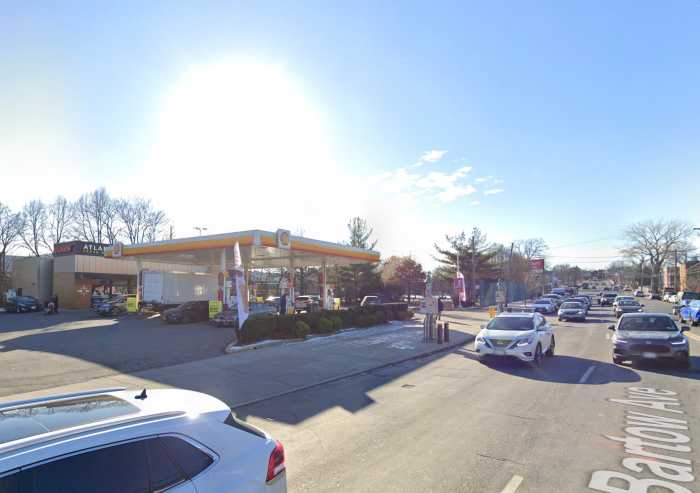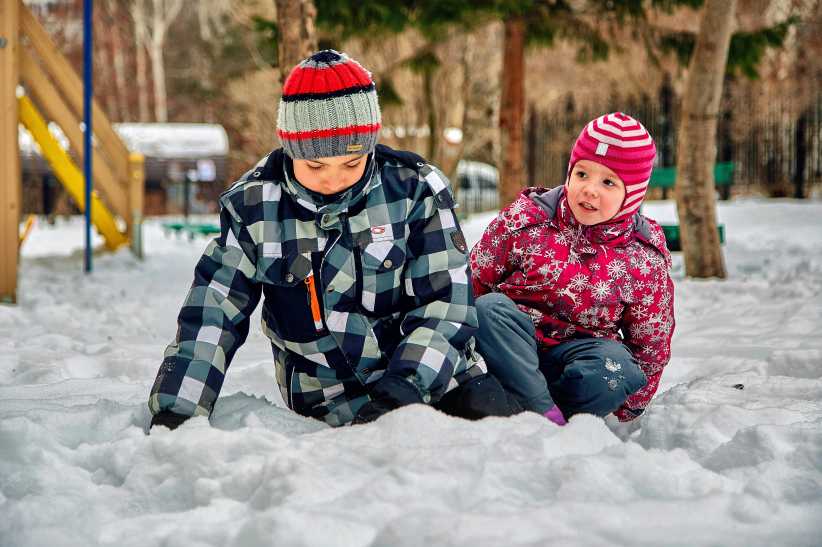Members of the New York State Nurses Association are calling on the government to give them a seat the table in deciding medical policies going forward after having been on the front lines of the COVID-19 pandemic.
The association, made up of 45,000 nurses statewide, started a tour today, holding rallies at Bellevue Hospital in Manhattan, Brooklyn Hospital, and at Rikers Island. They were seeking a say on issues from having reusable PPE’s, to the restoration of $2.4 billion in Medicaid cuts, and building up stockpiles of equipment for a possible resurgence of the virus and other pandemics in the future.
The Rikers Island rally of more than 50 nurses in front of the Rikers Island sign on 19th Street hammered home their point that the facility was “unprepared” for a pandemic and its health care workers were “inadequately supplied” with PPE and other protections from the beginning. Two of their health care workers died from COVID-19, contracted the nurses say from sick inmates.
“New York cannot reopen until we’ve got the tools we need to stop another outbreak,” said NYSNA Executive Director Pat Kane, RN. “We cannot repeat the mistakes to date, or many more lives will be lost. Nurses must have a seat at the table where our state’s healthcare decisions are being made.”
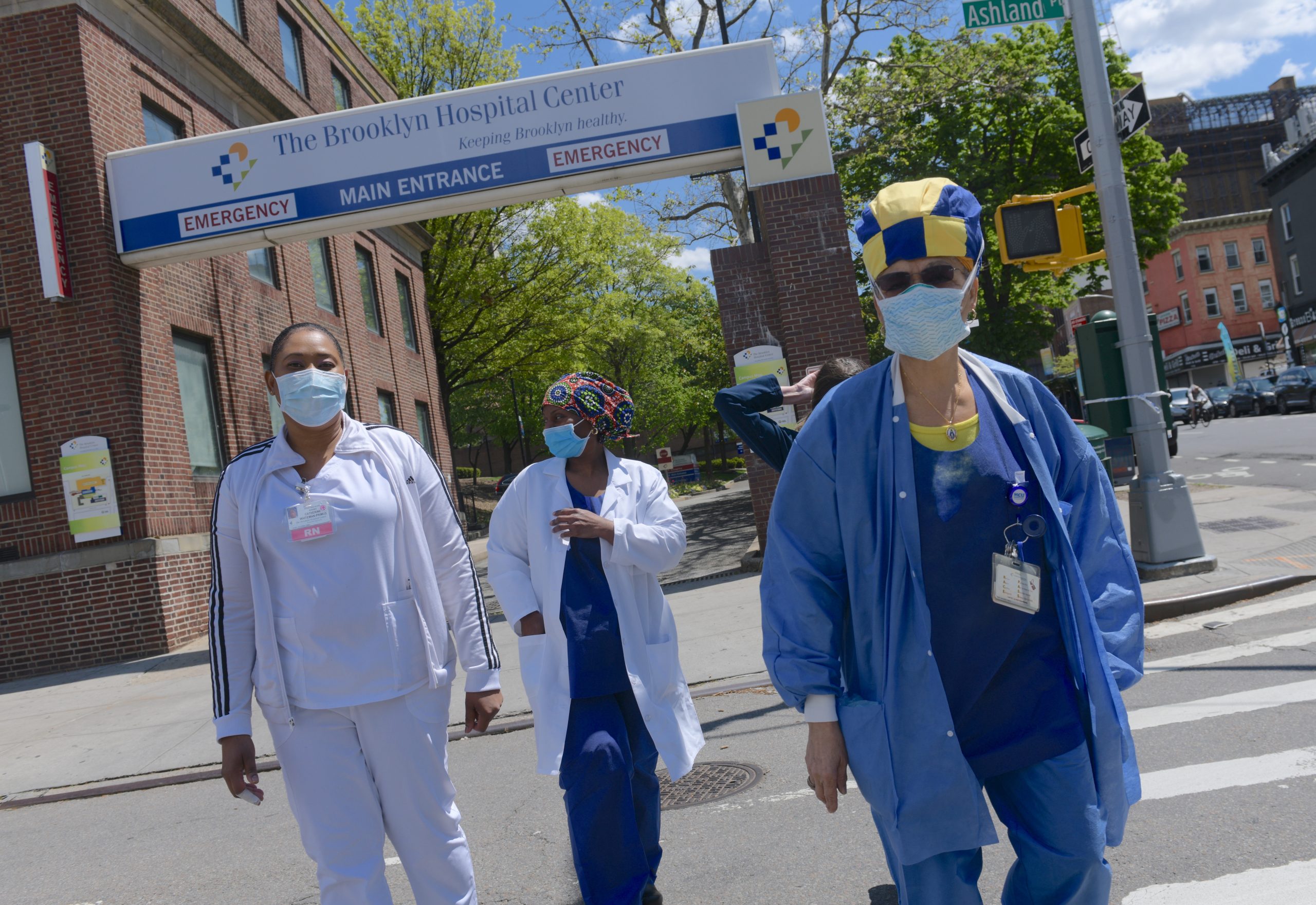
Kane point to what they maintain is “the continued inadequacy of personal protective equipment (PPE), including the rampant reuse of N95 disposable respirators, which contributed to eye-popping infection rates among healthcare workers.” She said reusable respirators must be part of the care planning going forward.
In addition, leaders are calling for the restoration of $2.5 billion in Medicaid cuts to next year’s NYS budget. They say “safety-net hospitals” have borne the brunt of the COVID-19 crisis and should receive a greater share of state Medicaid funding and other assistance needed to care for long-deprived communities.
They also say COVID-19 has also laid bare the deep economic and racial disparities in the state’s healthcare system. Reversing these longstanding inequities, they say, “must be a central focus as we move forward, and state lawmakers must prioritize funding for significant new healthcare infrastructure in hardest-hit communities.”

Most striking was a rally outside the Rikers facility, where at first, Corrections Officers tried to break up the rally, but then allowed it to proceed as long as participants remained on the sidewalk for safety reasons. Placards put up on the Rikers signage were also requested to be taken down.
Nurses at Rikers expressed the most outrage because they say they lost two nurses to COVID-19 as a result of exposure.
Mesha McDonald, a nurse at Rikers, mourned the loss of her friend and colleague, nurse William Chan who died from COVID-19.
“We come every day with the same mindset to serve our patients, but today we stand on our break to remember our beloved co-worker who didn’t have enough protection and had a patient with COVID throw up on him and he died and we are in mourning right now,” McDonald said. “Mr. William Chan died and we don’t want you to forget Mr. Chan who gave his service to this community. We had another young lady Natasha, she died. We are doing the job that people are not willing enough to do so we are asking for your help, your solidarity. We are nurses and this is a solemn nurses week because it brings tears to our eyes – this is not about the coffee and the donuts, this is about the reality.”
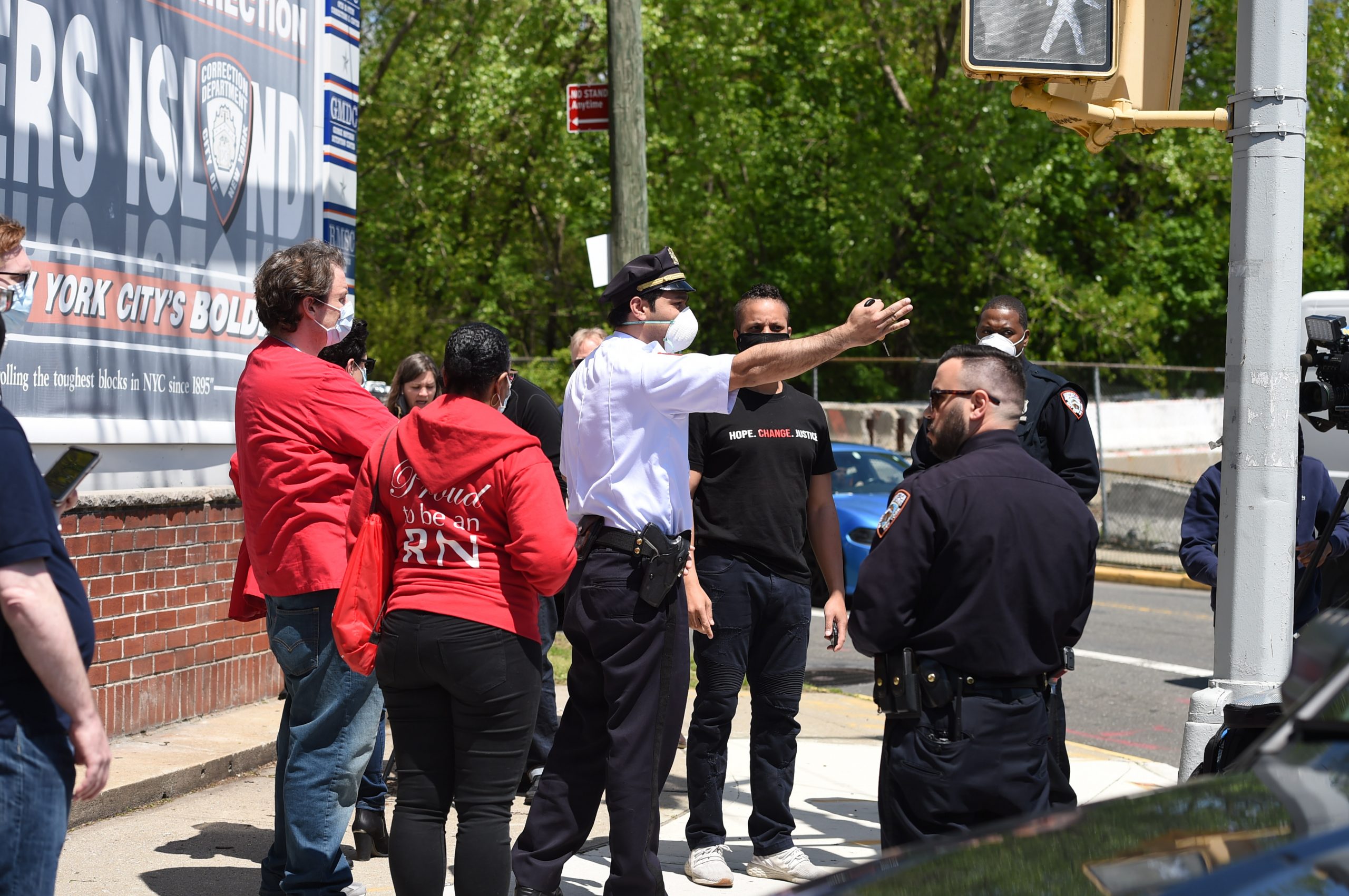
Nurses at Rikers say that it helped a lot to reduce the jail population, but precautions need to be made to improve conditions for workers and inmates there.
“Jail and correction is not what a lot of people want to talk about,” said Nurse Alicia Vupler, a nurse in Rikers. “We are here every day and we want to provide service safely. We want to be prepared with the proper equipment. We haven’t always had the equipment as needed and it didn’t come easy. We have been playing catch up. Some equipment is rationed out and not given as we would like it. Reducing the population was a start, but we still need to provide safe and quality care.”
Other changes underscored by the nurses union include: Science should set the standard. Safety, not efficiency or expediency, must drive decision-making; NY hospitals must build up stockpiles of vital equipment and begin migration to equipment designed to be reusable; On-demand, rapid-result diagnostic testing is a must for all front-line healthcare workers; Antibody tests are not and should not be the basis for safety decisions; Nothing less than the two-week quarantine or isolation period must be allowed for full recovery; Going forward hospitals will need more, not less, staffing. Nurses report COVID-19 patient loads far beyond what can be safely managed; Surge capacity must be maintained. Enough hospital beds and adequately trained staff are required to handle the repeat outbreaks anticipated. Declare a moratorium on hospital closings; Improved ventilation and enhanced engineering controls must be installed where needed; Coordinated purchasing pools, not “PPE to the highest bidder”, are the key to equitable access and results.
This rally and several rallies have occurred despite the mayor and NYPD commissioner saying these gatherings were not permitted.
This story first appeared on amny.com.


